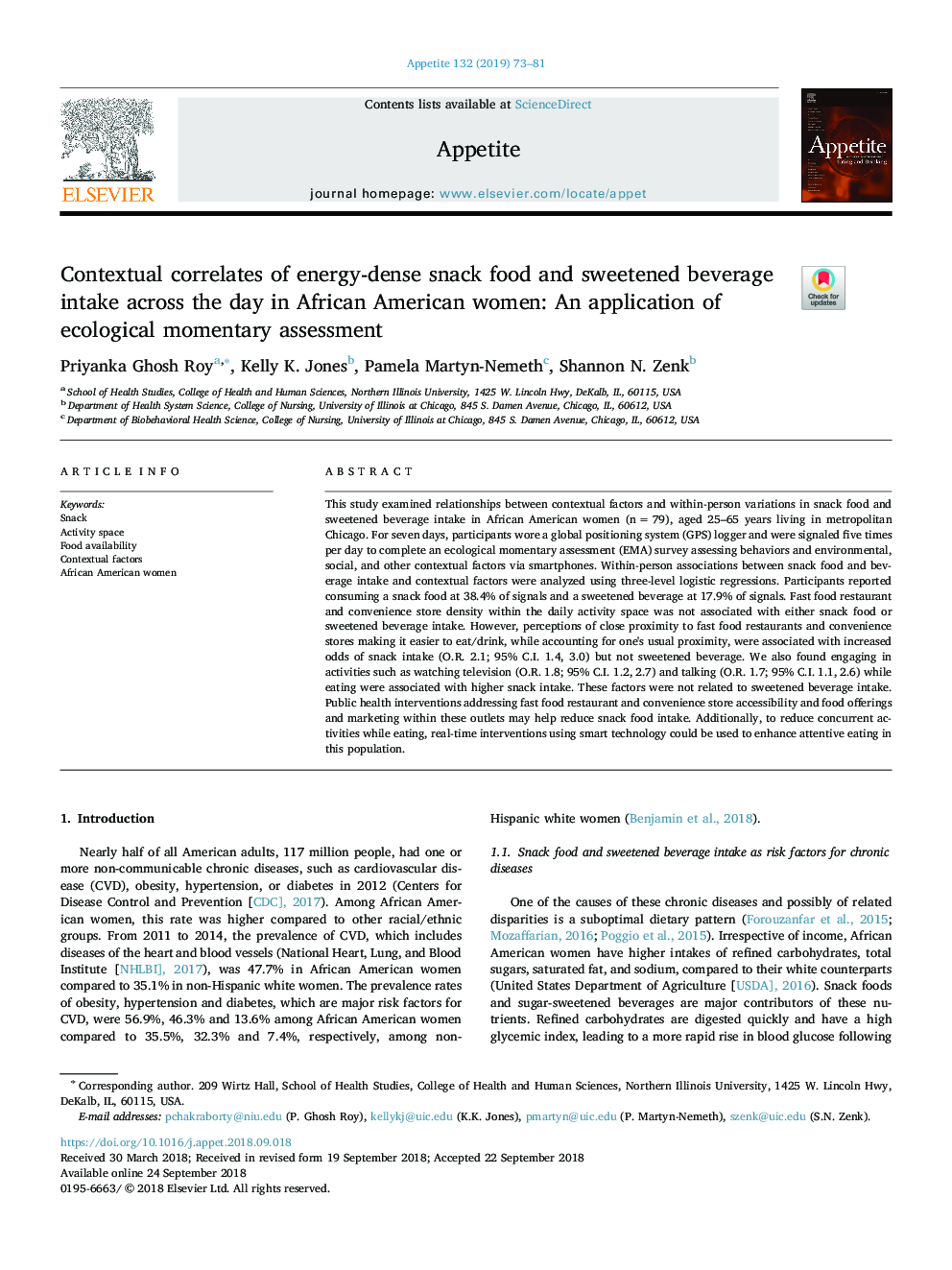| کد مقاله | کد نشریه | سال انتشار | مقاله انگلیسی | نسخه تمام متن |
|---|---|---|---|---|
| 11020573 | 1716294 | 2019 | 9 صفحه PDF | دانلود رایگان |
عنوان انگلیسی مقاله ISI
Contextual correlates of energy-dense snack food and sweetened beverage intake across the day in African American women: An application of ecological momentary assessment
ترجمه فارسی عنوان
همبستگی متقابل مواد غذایی مصرف شده با انبوه انرژی و مصرف نوشیدنی شیرین در طول روز در زنان آمریکایی آفریقایی آمریکایی: استفاده از ارزیابی لحظه ای اکولوژیک
دانلود مقاله + سفارش ترجمه
دانلود مقاله ISI انگلیسی
رایگان برای ایرانیان
کلمات کلیدی
خوراک مختصر، فضای فعالیت، در دسترس بودن غذا، عوامل زمینه، زنان آفریقایی آمریکایی،
موضوعات مرتبط
علوم زیستی و بیوفناوری
علوم کشاورزی و بیولوژیک
دانش تغذیه
چکیده انگلیسی
This study examined relationships between contextual factors and within-person variations in snack food and sweetened beverage intake in African American women (nâ¯=â¯79), aged 25-65 years living in metropolitan Chicago. For seven days, participants wore a global positioning system (GPS) logger and were signaled five times per day to complete an ecological momentary assessment (EMA) survey assessing behaviors and environmental, social, and other contextual factors via smartphones. Within-person associations between snack food and beverage intake and contextual factors were analyzed using three-level logistic regressions. Participants reported consuming a snack food at 38.4% of signals and a sweetened beverage at 17.9% of signals. Fast food restaurant and convenience store density within the daily activity space was not associated with either snack food or sweetened beverage intake. However, perceptions of close proximity to fast food restaurants and convenience stores making it easier to eat/drink, while accounting for one's usual proximity, were associated with increased odds of snack intake (O.R. 2.1; 95% C.I. 1.4, 3.0) but not sweetened beverage. We also found engaging in activities such as watching television (O.R. 1.8; 95% C.I. 1.2, 2.7) and talking (O.R. 1.7; 95% C.I. 1.1, 2.6) while eating were associated with higher snack intake. These factors were not related to sweetened beverage intake. Public health interventions addressing fast food restaurant and convenience store accessibility and food offerings and marketing within these outlets may help reduce snack food intake. Additionally, to reduce concurrent activities while eating, real-time interventions using smart technology could be used to enhance attentive eating in this population.
ناشر
Database: Elsevier - ScienceDirect (ساینس دایرکت)
Journal: Appetite - Volume 132, 1 January 2019, Pages 73-81
Journal: Appetite - Volume 132, 1 January 2019, Pages 73-81
نویسندگان
Priyanka Ghosh Roy, Kelly K. Jones, Pamela Martyn-Nemeth, Shannon N. Zenk,
